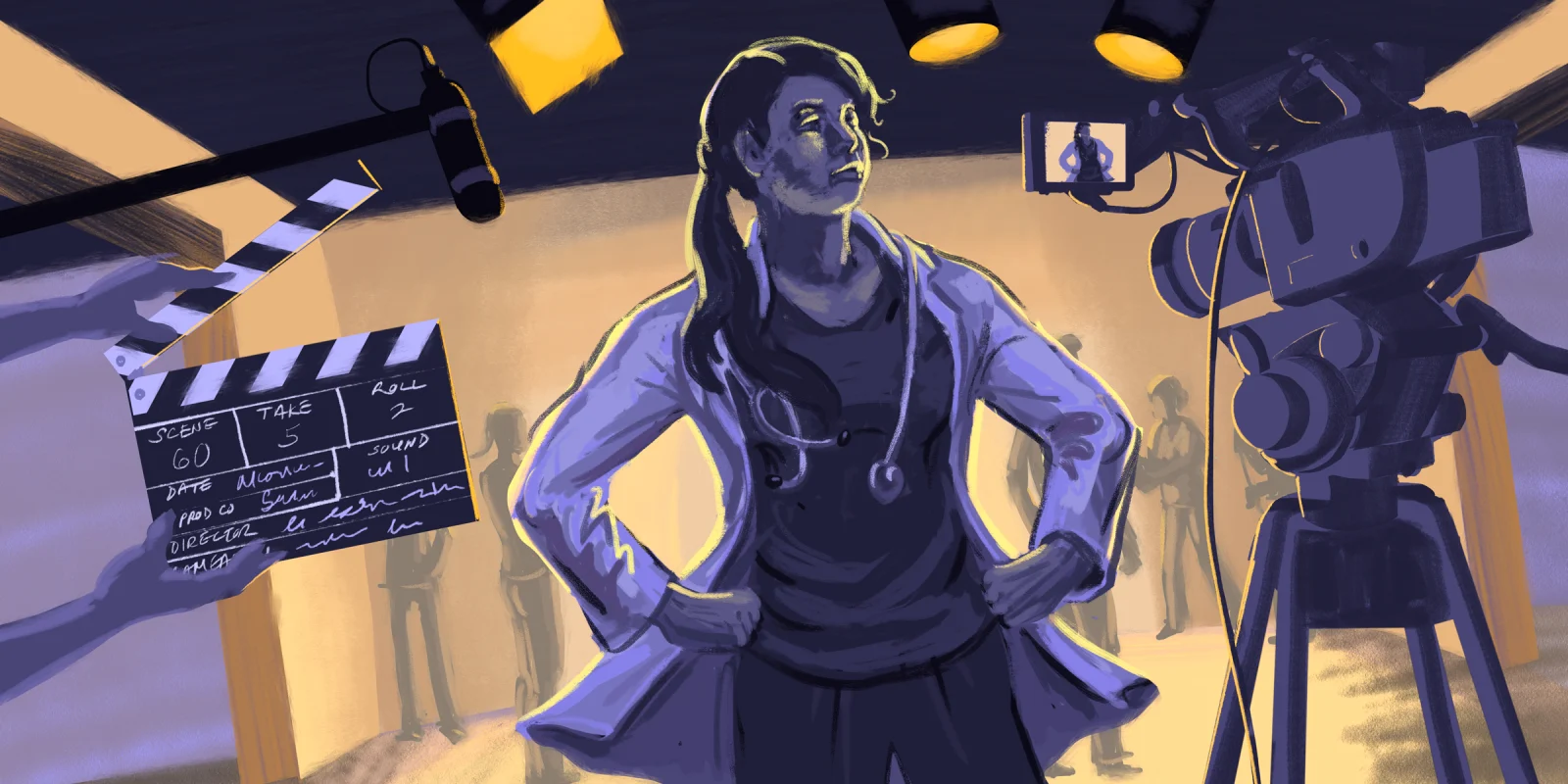Ever since I first watched Grey’s Anatomy as a college student, one of my biggest role models in medicine has been the fictional doctor Cristina Yang. In her time on the show, Dr. Yang — though cutthroat and intense — was the heartbeat of Grey’s. She was part of a close sisterhood with the titular character, Dr. Meredith Grey. She was an amazing surgeon. And she was strong in her stance that she could excel in medicine … without a husband and children. Many people in her life attempted to change her and this perspective, but in true fashion, Dr. Yang was steadfast. This is especially represented by her choice to terminate her pregnancy with (later ex-) husband, Dr. Owen Hunt, with whom she was embroiled in several heated arguments about the decision. In the midst of the episodes-long storyline, she uttered powerful words that I still hold on to today: “I don’t want one. I don’t hate children. I respect children. I think they should have parents who want them.”
Little did Dr. Yang or my family know that I felt seen and heard in a deep way by these words. Growing up in a large family meant that family gatherings were punctuated by a house full of laughter, trays of home-cooked food, and so many new baby cousins that there was a long line of abandoned car seats in the hallway until the festivities finally ended. Given this, I lived under the assumption that I would not only marry and have children someday, but that I’d specifically want to. It wasn’t until high school that I realized children might not ever be in the cards for me. There was an entire world for me to see, and the thought of sacrificing any of that to be home and a mother always brought a quiet pang of fear to my heart. I’d loved children since the moment I could hold a baby in my arms, but to be their mother, someone who is responsible for their life and my own, felt like an impossible task. Throughout college, I mostly kept my qualms to myself, with the exception of conversations with my own mother about her perspective and where I felt I was on my journey.
For women in medicine, there is an omnipresent tension about starting a family — will we do it; won’t we; will we be penalized either way. I recall one moment in particular that showed me how real these tensions are, even if they’re generally unspoken. I was early in my application cycle for medical school, and had received a virtual interview invitation from a school I applied to. I made sure to prepare as much as possible, completing mock interviews with my advisor, testing my makeup beforehand, and laying out my best business suit the night before. I logged in the morning of, with sweaty palms and an enthusiastic smile, equipped with answers to whatever questions might come my way. My first interviewer, a male physician, greeted me with an equally warm smile and proceeded to open the conversation with a discussion about the origins of my Swahili name, caring for international community members, and imagining a better world for our patients. I was so engrossed in the conversation that I forgot I was being interviewed until he asked me: “So, what are your plans for a family?” My mind momentarily short-circuited — this was not a question I ever imagined I’d need to prepare for. I also knew that this particular question was not allowed in the interview space, and proceeded to provide an answer that related back to my application’s emphasis on community care and serving marginalized communities. He shook his head in dissatisfaction and said: “No, I mean your plans specifically for a family. Medicine is fine and all, but you have a duty to marry a man and have children.” He said other things in the remaining interview time, but I only remember the static in my ears and the sweat seeping through my favorite suit jacket. My eyes glossed over and heat radiated up my spine toward the top of my ears. Words were inadequate to name the shock, discomfort, and outrage I felt in the moment. More importantly, I was disappointed that my quest to become a strong clinician who served her community was reduced to the plans I had for my romantic and reproductive life, plans that I was still questioning and working through for myself.
I ultimately withdrew my application from the program — despite it being the only one I’d received at that point in the cycle — with some anxiety but mostly conviction in my heart. I knew that I was meant to be in medicine and that I’d end up at the institution that would see me for who I was and who I ultimately wanted to be: a phenomenal doctor. Now, almost four years later, the world looks a lot different from that moment, in some ways better and in many ways worse. As I embark on my journey to residency, I am comforted by the fact that there are resources available for residents considering their reproductive options: fertility insurance that covers IVF and egg retrieval/freezing, protected maternity/paternity/reproductive recovery time, protected lactation/pumping time, childcare benefits, parental support and education groups, and many more.
As of today, I still have no idea what the future holds for me and my family, but I know that there is at least one other woman who understands that people with uteruses are more than our bodies and potential genetic contributions to the world: Dr. Cristina Yang. We women in medicine are dynamic, intelligent individuals who have the power and autonomy to create the future we want, whether that includes traditional partnership and children or not. I’d be remiss if I did not share one last pearl from Dr. Yang that gives me the hope and courage to move forward in my career with this conviction. During one of her final scenes in the series prior to her exit, Dr. Yang left a dazzling message to Meredith: “Don’t let what he wants eclipse what you need. He’s very dreamy, but he’s not the sun. You are!” Though she was referring to Meredith’s relationship with lauded neurosurgeon Dr. Shepherd (aka McDreamy), this quotation reminds me that I exist at the nexus of my own universe, and only I can determine the direction in which it and myself will spin as it relates to love, children, medicine, and otherwise. It is my hope that Dr. Yang and I can inspire you to pursue medicine, your dreams and your passion, regardless of what they look like, with boldness and confidence. The future is yours to behold.
What fictional characters do you look to for inspiration? Share in the comments!
Najya A. Williams is a multidisciplinary artist, narrative medicine practitioner, and fourth-year medical student at the Lewis Katz School of Medicine. She is passionate about serving her community and intends to continue this work after graduation as a family medicine physician. You can learn more about Najya’s endeavors via her Instagram (@NajyaWilliams) and website (najyawilliams.com). Najya is a 2024–2025 Doximity Op-Med Fellow.
Illustration by Jennifer Bogartz







